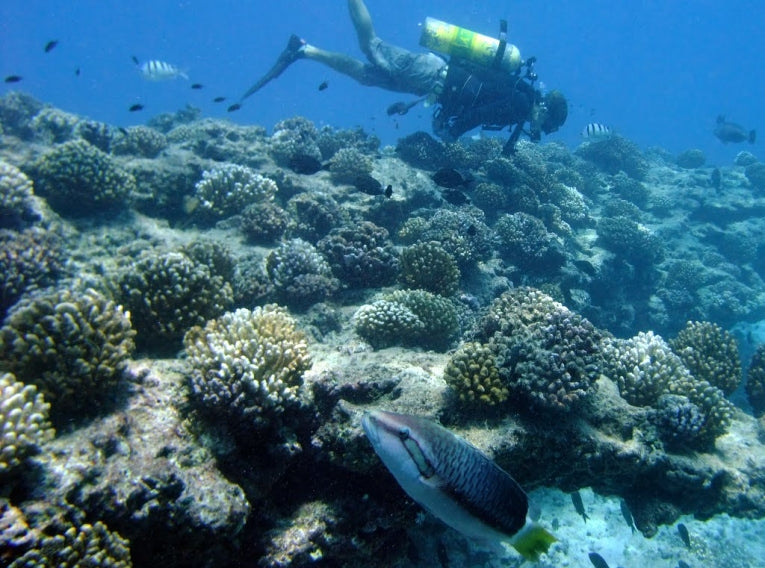Natives of the Hawaiian Islands, like many island peoples, have traditionally obtained a large proportion of their protein intake from seafood obtained in the waters around them. The reefs are a home to an incredible variety of creatures and are an abundant source of food for those who live nearby.
However, as with any natural resource, care must be taken to manage and balance utilisation and history may be able to teach us something about reef management. We saw last week that current human action has significant effects on the health of a reef and a recent historical reconstruction supports this notion. Focusing on the interaction of human populations in the Hawaiian Islands, a team led by Dr. John N. Kittinger has published a report in the journal PLoS ONE that shows the results of human influence on coral development and recovery.
 human-environment interactions in two different regions of the Hawaiian archipelago to identify the key factors that contributed to degradation or recovery of coral reefs">
human-environment interactions in two different regions of the Hawaiian archipelago to identify the key factors that contributed to degradation or recovery of coral reefs">
Credit: © Jonathan Blodgett, Division of Aquatic Resources, Hawaii DLNR (PLoS ONE)
There is archaeological evidence that the archipelago was populated by Polynesian settlers at some point between 300 and 800 AD. These people built a society dependent on the reefs, and exploitation reached a peak in around 1300 AD. Happily, the settlement moved to other sources of protein with an increased reliance on domesticated animals. Combined with proactive reef conservation, the reef recovered and it was the influence of European contact, a few hundred years later, which brought new risks. It was only the Second World War that provided any relief from the gradual degradation that has brought us to the situation we have today. Dr. Pikitch, executive director of the Institute for Ocean Science and Professor at Stony Brook University, was positive about the research, explaining that it demonstrated the adaptability and durability of coral reefs. She suggested, "...we should not dismiss the possibility of bringing even the most degraded reefs back to health."
At a time when much of the news we hear of our environment is negative, it is always welcome to learn of something positive. With care and attention, the world's reefs may be something that we can successfully conserve.










